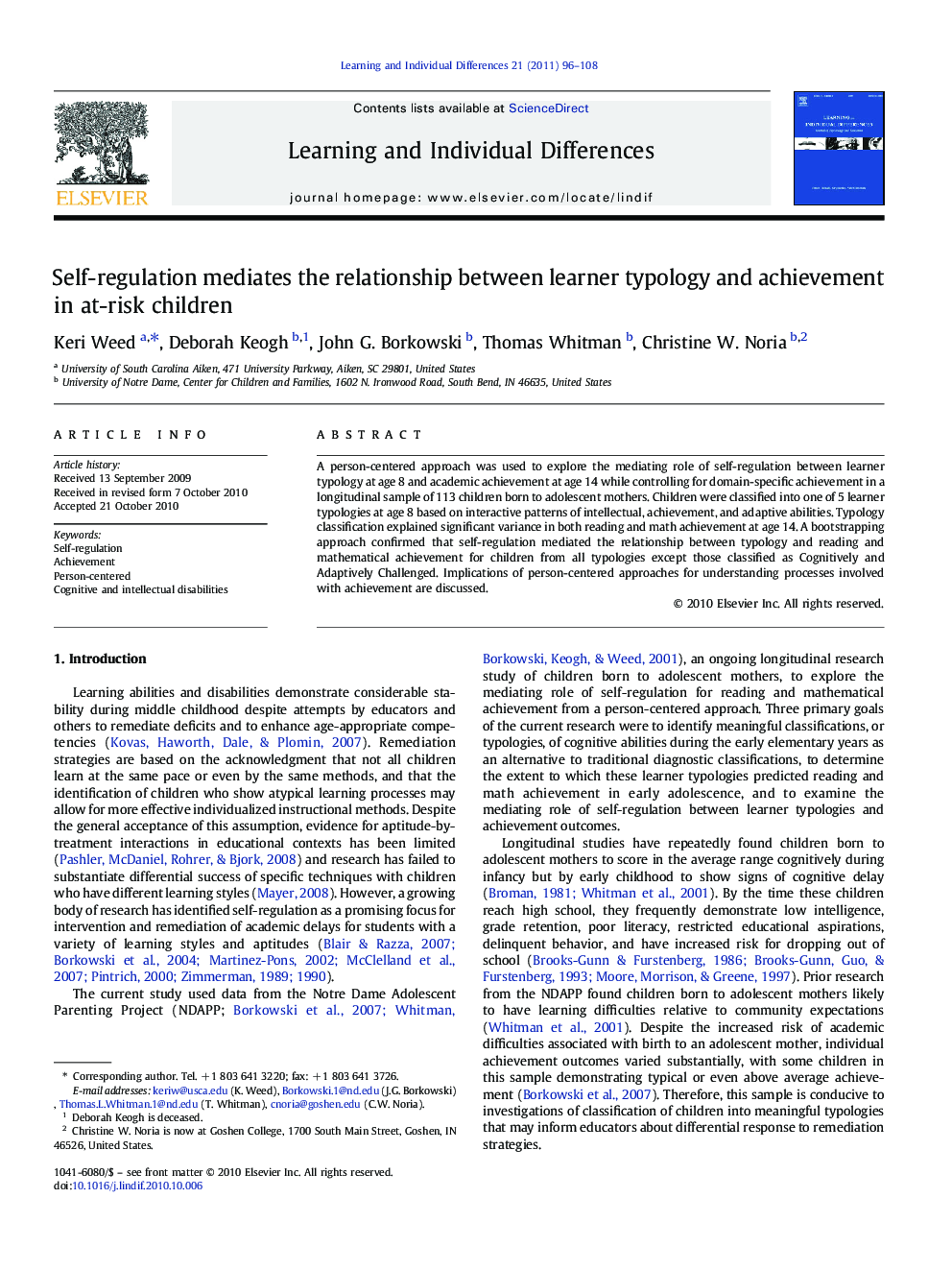| کد مقاله | کد نشریه | سال انتشار | مقاله انگلیسی | نسخه تمام متن |
|---|---|---|---|---|
| 365034 | 621104 | 2011 | 13 صفحه PDF | دانلود رایگان |

A person-centered approach was used to explore the mediating role of self-regulation between learner typology at age 8 and academic achievement at age 14 while controlling for domain-specific achievement in a longitudinal sample of 113 children born to adolescent mothers. Children were classified into one of 5 learner typologies at age 8 based on interactive patterns of intellectual, achievement, and adaptive abilities. Typology classification explained significant variance in both reading and math achievement at age 14. A bootstrapping approach confirmed that self-regulation mediated the relationship between typology and reading and mathematical achievement for children from all typologies except those classified as Cognitively and Adaptively Challenged. Implications of person-centered approaches for understanding processes involved with achievement are discussed.
Research Highlights
► 5 learner typologies emerged through cluster analysis when children were age 8.
► Learner typologies were predictive of reading and math achievement at age 14.
► Self-regulation mediated the association between typology and achievement at age 14.
Journal: Learning and Individual Differences - Volume 21, Issue 1, February 2011, Pages 96–108